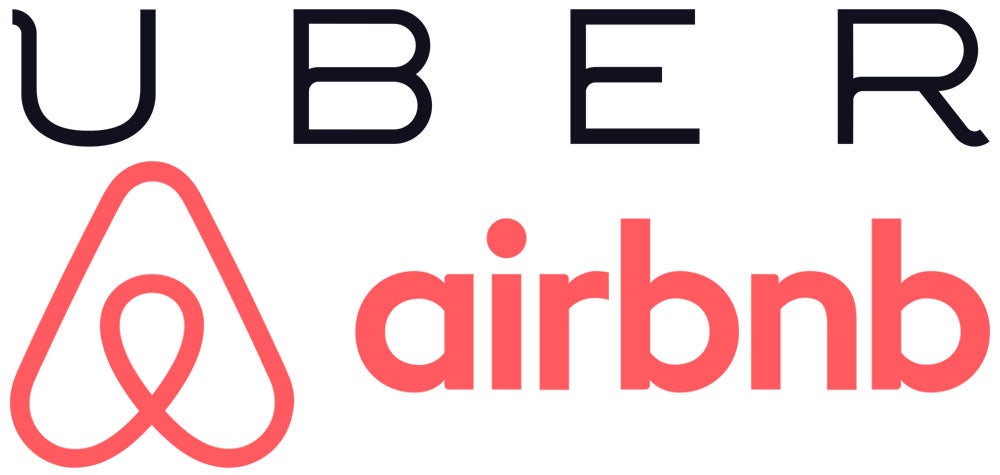 ‘Disruptive’ is a favorite word among entrepreneurs and innovators, but start-up companies like Airbnb and Uber truly have disrupted long-standing industries over the past few years. Beyond their youth and success, what further links these two companies as well as many others (such as Teespring, Postmates, Patreon, and Verbling), is the way they empower people.
‘Disruptive’ is a favorite word among entrepreneurs and innovators, but start-up companies like Airbnb and Uber truly have disrupted long-standing industries over the past few years. Beyond their youth and success, what further links these two companies as well as many others (such as Teespring, Postmates, Patreon, and Verbling), is the way they empower people.
Exemplified by Airbnb and Uber, among others, is a new kind of business model that is revolutionizing many sectors, including how we get our electricity. Just like hotel and taxi industries, these disruptive, decentralized trends are taking hold in energy – affording people more choice, enabling existing resources and technology, and empowering people to veer from the traditional provider of services. Moreover, they even allow some people to make money in ways that didn’t exist until recently.
The key to disruption: customers are at the center
Previously, if you needed a place to stay or a ride, you had limited options, all involving a “gatekeeper;” for lodging, it was the hotel, and for private transportation, the taxi. Airbnb and Uber have completely changed this standard, opening the door for competition and decentralization of resources.
Similarly, decentralized power generation means people have more variety than ever before when it comes to where they get their electricity. And the upswing of microgrids and rooftop solar panels is catalyzing the electricity sector’s trend toward decentralization.
Microgrids are localized energy systems – often fueled by natural gas and/or renewables – that can operate independently from the broader transmission and distribution grid when needed. Thus, when conditions for drawing electricity from the central electric grid are unappealing – like during a power outage, for example – the microgrid can disconnect from the main grid and continue to provide power. Microgrid customers therefore benefit from not needing to alter their electricity consumption behavior as much as those stranded on the broader grid.
At an even more localized level, rooftop solar panels are a growing source of distributed electricity generation. Bloomberg New Energy Finance (BNEF) forecasts in its June 2014 2030 Market Outlook that, by 2030:
Renewables will command over 60 percent of the 5,574 GW of new [global] capacity and 65 percent of the $7.7 trillion [global] power investment. Rooftop solar PV will dominate, taking up a fifth [1,073 GW] of the capacity additions and investment to 2020.
Decentralization also means people have more choice in terms of investment and potential profitability. According to BNEF, customers in many locations can already make a return on investment above six percent (in real terms) by installing a PV system and operating it for a 25-year lifetime. And in locations with net metering, PV owners sell their excess electricity generation back to the grid. In other words, as with Airbnb and Uber, clean energy creates a platform that enables owners to directly sell a good and generate profits.
As costs decline, this profitability will increase. BNEF believes “from at least 2020, [policy and/or financial] support will no longer be necessary for [solar] PV build, thanks to a significant decline in costs.” Thus, solar promises to become an increasingly affordable fuel source that empowers individuals. And individuals have proven quick to capitalize. In Germany, the country with the most advanced solar progress, people and small businesses own over half of all renewable electricity capacity.
More choice, responsibility, and freedom
Airbnb and Uber realized the number of rooms and cars already in existence weren’t being utilized in the most efficient, not to mention profitable, way. Similarly, microgrid and solar PV technology already exists and operates successfully. People and businesses are finding ways to take better advantage of these resources.
In the burgeoning decentralized model, companies create a platform so individuals can own the valued good or service that is produced and potentially sold. As with Uber and Airbnb, many clean energy technologies, such as microgrids and solar PV, are forcing a previously entrenched industry to pivot, placing customers at the center.
If this trend continues, companies will see to it that you, the individual, are empowered in countless new contexts. Just know that with great power comes great responsibility. And with more options comes more choices. I, for one, am ready to choose a clean energy future.
Photo sources: Both Wikimedia commons (Uber, Airbnb)









